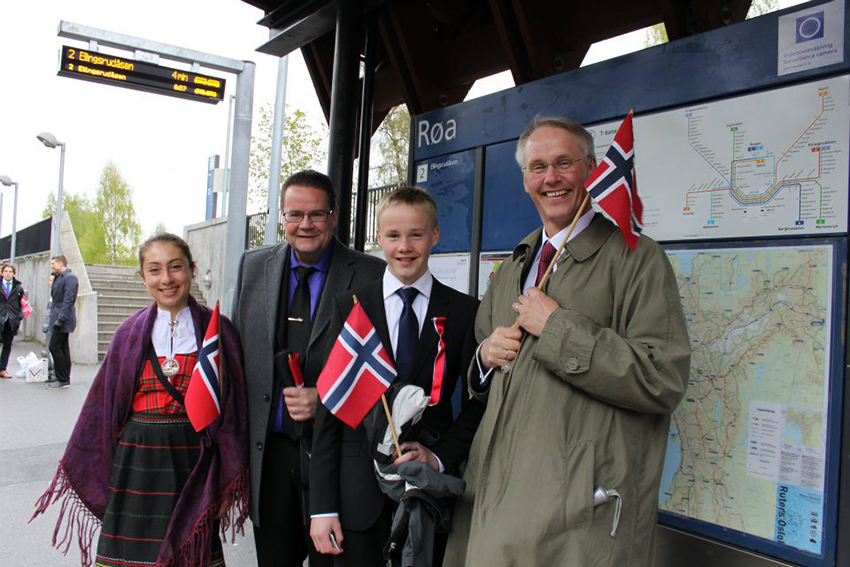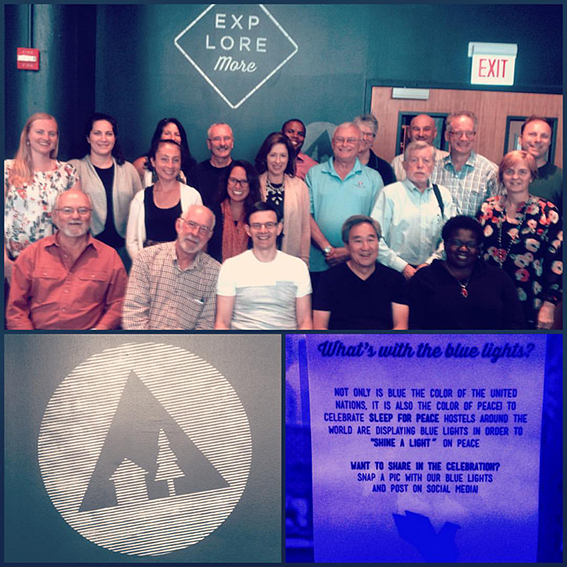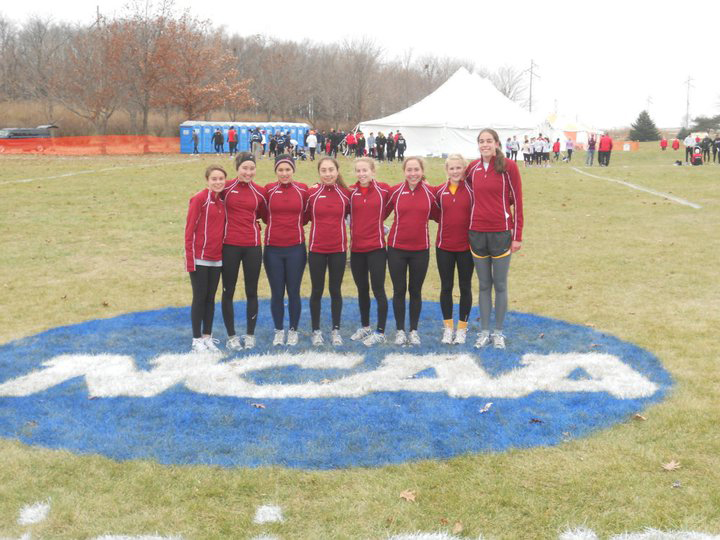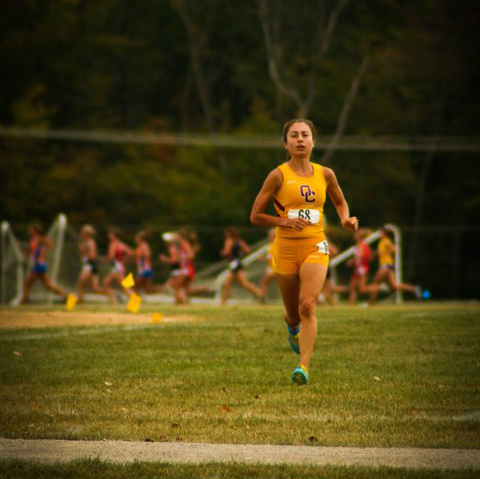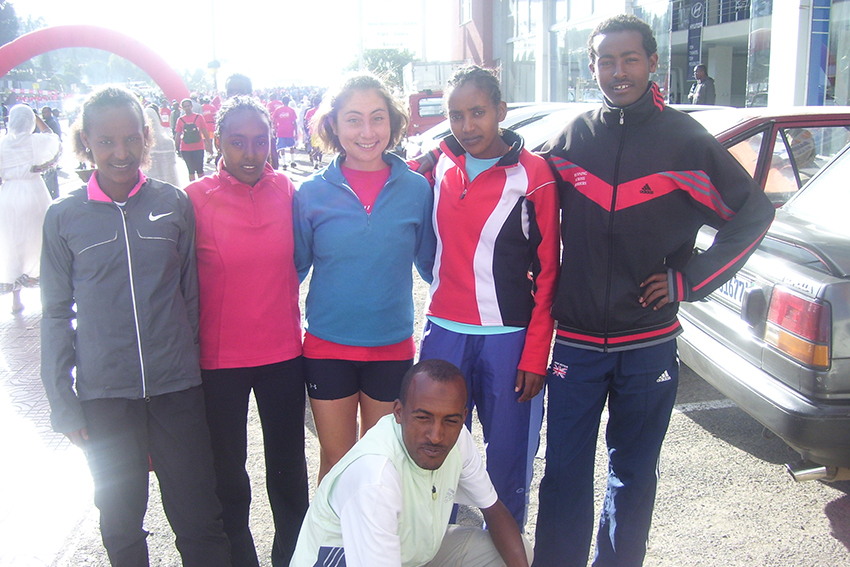The cultures of running
BGSU's Joanna Line links world travel, athletics, women’s empowerment
By Kandace York
When Joanna Line joined Bowling Green State University as assistant coach of Women’s Cross Country and Track and Field, she was already an accomplished runner with six marathon finishes and seven NCAA All-American honors.
Line also brought international insight to the teams. She had spent a gap year, after high school, in Belgium. Few other people were runners in the small village where she lived with her host family, and she was viewed as a curiosity.
“That’s where running took on another meaning for me,” said Line, who owns a personal marathon best time of 2 hours, 48 minutes.
A year later, a summer internship in Spain fueled more interest about societal attitudes toward running.
After graduating from Oberlin College with double majors in biology and French, she was awarded the Thomas J. Watson Fellowship, a one-year grant for “purposeful, independent exploration” outside the United States.
“I decided on a theme of women’s empowerment through running,” Line said.
The Watson year
The countries Line chose seem random — Ethiopia, France, Norway and Singapore —but her thought process was clear.
“Initially, I looked at countries where running played a big role and where teams had placed high on the international level,” she said. “I contacted many running teams and clubs to ask if I could run with them, and I chose my destinations based on the connections I was able to make.”
Of additional interest were countries where women’s roles were very different from those in the United States.
“I wanted to know what motivated women to run, the challenges they faced and the successes they had as runners,” Line said.
Ethiopia
Line’s first stop was Ethiopia. In contrast to summers in Ohio and in her hometown of Chico, California, temperatures in Ethiopia reach as high as 113 degrees, and downpours sometimes wash out roads. Yet Ethiopia ranks next to Kenya as a world leader in running competitions.
“Ethiopians are very serious about running,” she said. “In Addis, Ababa, where I lived and trained, people cheer for you just because they see you out running, and sometimes children will even join in and run alongside you.”
For four months, Line lived with 11 runners who were part of a co-ed team, Running Across Borders.
“Running is one of the few options women there have to make a real career, and they take it very seriously,” she said.
France
Next came two months in Paris.
“Sport played a completely different role for the members of the club I ran with in France,” Line said. “Running there is much more recreational, much more relaxed.”
Her college major of French had made Paris a natural choice from the start, but with a shy laugh, she admitted to another reason. It allowed her to miss the worst of winter weather in her next stop.
Norway
Norway is known for cold winters (part of the country lies above the Arctic Circle), short days and, in some places, “head-high” snow.
Norwegians embrace it all.
“They are very active year-round,” Line said. “Even when it was freezing and snowing, I’d still see parents out with their strollers. They even have outdoor kindergartens where the kids are outside all day.”
This hardiness extends to Norwegians’ attitudes toward running, along with a culture of gender equality and hospitality.
“Grete Waitz, an outstanding runner, was from Norway, and she was the reason I wanted to go there,” she said.
Waitz won nine New York City Marathons, and is considered a role model for female runners.
Although Waitz died of cancer before Line arrived, “I was able to meet, and then to train with, her husband and the club she was part of, 5K Vidar. It was an incredible experience.”
Singapore
Line traded fjords for rainforests at her final stop of Singapore, about 6,000 miles southeast of Norway.
“The running culture there is incredible — inspiring and just a lot of fun,” she said.
Despite Singapore’s small size, running clubs were numerous and runners could choose from several races in their communities nearly every weekend.
“The clubs I ran with were tight-knit and very warm and welcoming; after runs we often all went out to dinner together,” she said. “Although running wasn’t career-oriented like in Ethiopia, it was still a central part of the lives of the people I met.”
New directions
The years that Line spent with the fellowship, her internship and her gap year refocused her life.
She became a chapter coordinator for Girls Gotta Run Foundation, which supports Ethiopian female runners with safe places, educational opportunities and athletic training. Line joined the board of Hostelling International USA, an organization that uses travel to foster a deeper understanding of people and places in the world.
She also changed her academic focus to athletics and completed a master’s degree in exercise and sport studies at Smith College.
Bringing it all to BGSU
Today, being a part of BGSU’s athletics staff seems like a natural fit.
Line said she looks forward to continuing the upward trend of women’s athletics at the University.
“I’ve really enjoyed getting to know our teams and the coaches, and this is an exciting time to be part of the women’s track and field and cross country teams,” she said.
In 2016-17, the women’s teams finished third in the MAC in cross country and fourth in indoor track and field; they also had the highest team score for the program in 18 years at the outdoor track and field MAC championships. Additionally, BGSU sent a student-athlete to the outdoor track and field national championships for the fifth consecutive year, and the cross country team holds the fourth-highest GPA in the country.
Beyond the statistics, though, Line said, “Our student-athletes are positive and hard-working, and I’ve enjoyed coaching them.”
This fall, Line is expanding her focus on travel, athletics and gender studies. She’ll be a Ph.D. candidate in American Culture Studies, focusing on women in sport.
Updated: 12/02/2017 12:22AM

